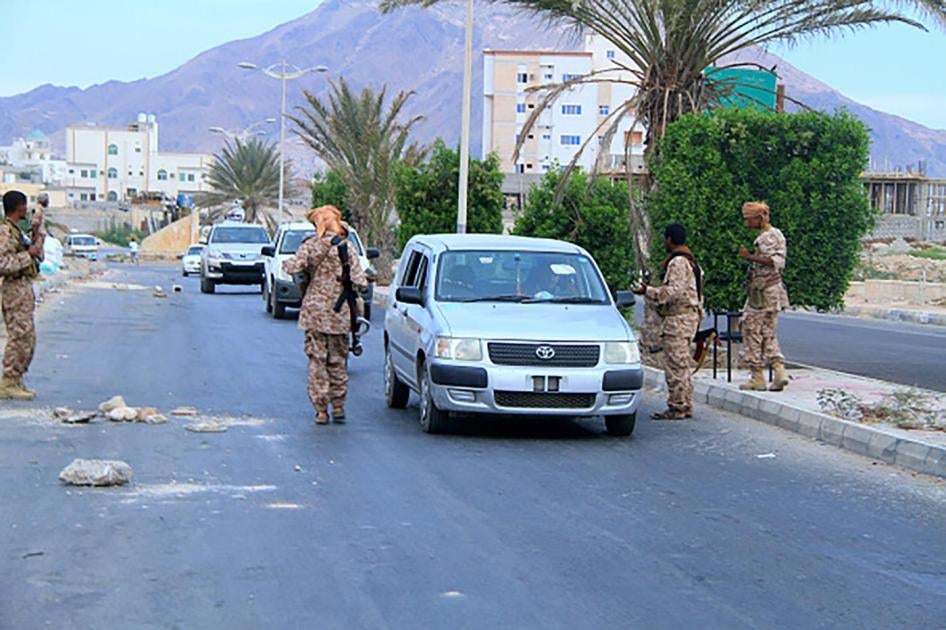(Beirut) – The United Arab Emirates was involved in abuses at home and abroad in 2017, arresting one of the last outspoken rights critics in the country and playing a role in torture and disappearances in Yemen, Human Rights Watch said today in its World Report 2018.
In March, the UAE detained Ahmed Mansoor, an award-winning human rights activist, who had for years defended and spoken out on behalf of people the UAE was arbitrarily detaining or rounding up in its routine crackdowns on dissent. Mansoor is facing speech-related charges that include using social media websites to “publish false information that harms national unity.”
“The government and the many public relations firms it pays try to paint the UAE as a modern, reform-oriented country,” said Sarah Leah Whitson, Middle East director at Human Rights Watch. “This rosy vision will remain fiction so long as the UAE refuses to release the activists, journalists, and critics it has unjustly jailed, like Ahmed Mansoor.”
In the 643-page World Report, its 28th edition, Human Rights Watch reviews human rights practices in more than 90 countries. In his introductory essay, Executive Director Kenneth Roth writes that political leaders willing to stand up for human rights principles showed that it is possible to limit authoritarian populist agendas. When combined with mobilized publics and effective multilateral actors, these leaders demonstrated that the rise of anti-rights governments is not inevitable.
Labor abuses persist in the UAE. Migrant construction workers face serious exploitation. The UAE adopted a domestic workers law in September providing labor rights for migrant workers for the first time, but some provisions are weaker than those provided to other workers under the country’s labor law.
The UAE discriminates based on sex, gender identity, and sexual orientation. In August, the UAE sentenced two Singaporean nationals, who had been arrested in an Abu Dhabi shopping mall, to one year in prison “for attempting to resemble women.” An appeals court converted their sentence to a fine and deportation.
The UAE is a leading member of the Saudi-led coalition operating in Yemen. Human Rights Watch has documented 87 apparently unlawful coalition attacks, some most likely war crimes, that have killed nearly 1,000 civilians since March 2015. Coalition members, including the UAE, have provided insufficient information about the role their forces are playing in the campaign to determine which country’s forces are responsible for unlawful attacks.
The UAE has been implicated in abuse in Yemen, including by supporting abusive Yemeni forces carrying out security campaigns in southern Yemen. The UAE operates at least two informal detention facilities in Yemen. Its officials appear to have ordered the continued detention of people held there despite release orders, as well as forcibly disappearing people, and moving high-profile detainees outside the country, based on Human Rights Watch research. Former detainees and family members have reported abuse or torture inside facilities run by the UAE and UAE-backed forces. Yemeni activists who have criticized these abuses have been threatened, harassed, detained, and disappeared. The US works closely with the UAE in Yemen.
“Whenever the US and others praise the UAE for its critical counterterrorism support in places like Yemen, they paper over a much darker reality – of disappearances, torture, and detainee abuse, and their own potential complicity in these abuses,” Whitson said.








